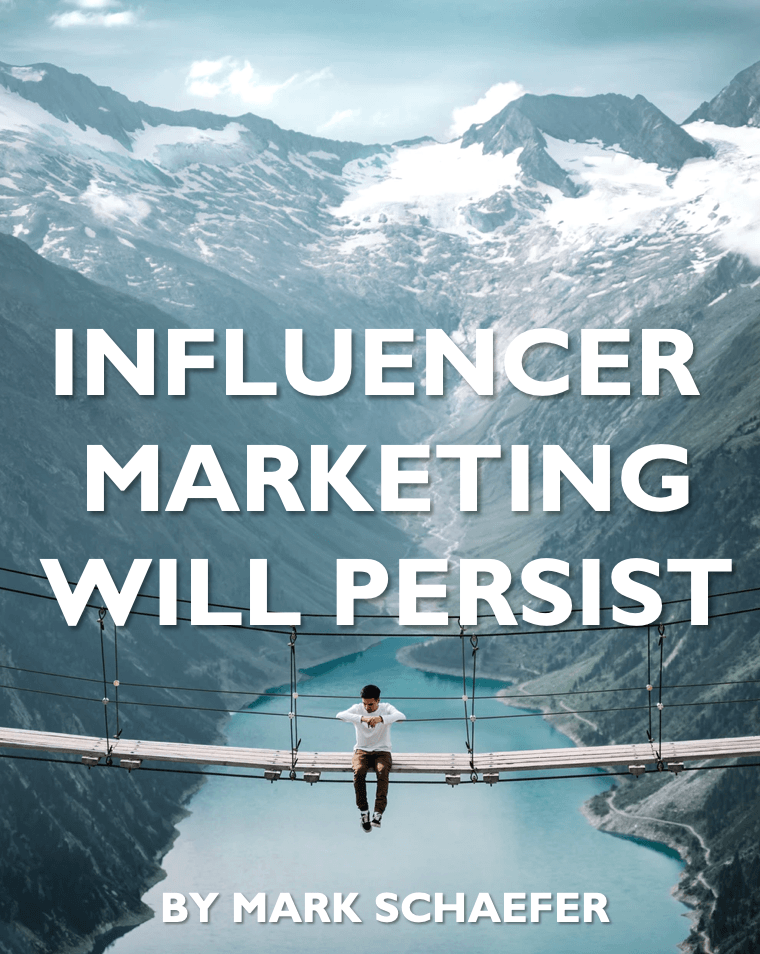
Influencer marketing has been under constant attack for the last two years and now the Facebook/Instagram Industrial Complex seems bent on taking away “likes” — the lifeblood of influencer engagement success.
My smart friend Christopher S. Penn had an interesting insight on this in a new free research paper, claiming there are economic, not altruistic, reasons for the change:
Influencer marketing has become a multi-billion dollar industry. Which is why, to no one’s surprise, major social networking companies are looking at ways to take back some of that money, from punitive algorithm changes to outright removing key influencer metrics (like hiding Likes or YouTube subscriber numbers).
From companies like Facebook’s perspective, every dollar that goes to an influencer is a dollar that they didn’t get for advertising. And you can believe that Zuckerberg and company won’t stand for that very long. They’ll make a vacuous claim (“mental health improvements” in regard to hiding likes) while they change the game for influencers in the same style of bait and switch that they pulled on brands. And that’s entirely fair; something-for-nothing was never a sustainable strategy for anyone. Combine this with increasing regulatory interest, and the clock is ticking for influencer marketing as we know it, before social networks pull the rug out from under everyone’s feet.
That begs the question: in this new landscape, who will be influential?
Influencer marketing today is not what you think it is
I partially disagree with Christopher because his premise is hung on “influencer marketing as we know it.”
What exactly is that? What IS influencer marketing “as we know it?” I would have to rely on Christopher for his interpretation, but I’m guessing most people think of influencer marketing as paid sponsorships that fuel product-infused posts on Instagram and other social media platforms.
I’ll argue today that this is NOT influencer marketing any more. In fact, for many brand the strategies are evolving to a new direction — unpaid “micro-influencers” (people with under 1,000 followers). And this is why the future of influencer marketing is bright … and really just starting.
The micro-influencer trend
It’s hard to get reliable data on the breakdown of such a fast-changing field like influencer marketing, but let me point out a couple of things I DO know.
- Pierre-Loic Assayag, co-founder and CEO of the influencer platform Traackr, told me that 98 percent of the online content mentioning brands is from non-paid micro-influencers.
- One global agency executive told me that it makes economic sense to work with 100 people who have 10,000 followers than one guru-diva with a million followers. The average Instagram engagement for a paid influencer is between 3 percent and 4 percent, while micro-influencers are averaging 14 percent for a lot less investment.
- Several large brands are moving their marketing budgets to micro-influencers.
Again, this is not a take-it-to-the-bank research study, but I think these are meaningful observations and they also just make sense.
This is why I think that the long-term trend toward influencer marketing will continue forward with fury, but maybe on a different path than we think.
Follow the influencer marketing money
Here’s a mega-trend that isn’t going away soon — brands are running out of places to spend their ad budgets. This is going to be thrown into further turmoil as Google, Facebook, and Amazon face anti-trust pressure from the US government.
Influencer marketing still has vast untapped potential. There are countless case studies showing how it can produce impressive financial results. But the field is just a teenager going through growing pains. It’s not yet time to call it “dead.”
Christopher Penn is correct in saying that measurement may get more difficult if Facebook takes away the “Like,” but I presume users will still have some sort of dashboard to report on engagement. The measurement will eventually catch up, but influencer marketing will persist in new and more creative forms. Just watch.
Illustration courtesy Unsplash.com